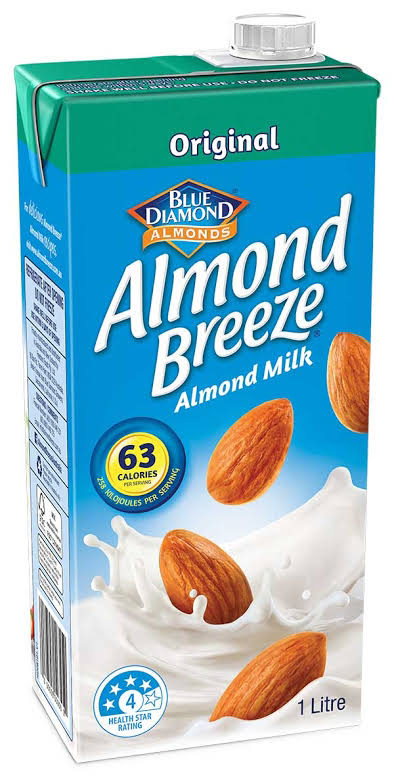Almond milk

Almond milk has become a popular plant-based alternative to dairy, appealing to vegans, lactose-intolerant individuals, and health-conscious consumers alike. Here’s a quick look at why almond milk has earned its place in many kitchens.
Nutritional Profile
A cup (240 ml) of unsweetened almond milk typically contains:
– Calories: 30-50
– Fat: 2.5-3 grams
– Protein: 1 gram
– Carbohydrates: 1-2 grams
– Calcium: 30-45% of the daily value (DV)
– Vitamin D: 25-30% of the DV
– Vitamin E: 50% of the DV
Health Benefits
1. Lactose-Free: Ideal for those with lactose intolerance or dairy allergies.
2. Low in Calories: Great for weight management.
3. Rich in Antioxidants: High in vitamin E, which protects cells from damage.
4. Heart Health: Contains healthy fats that can help lower bad cholesterol.
5. Bone Health: Often fortified with calcium and vitamin D.
Uses of Almond Milk
– Beverage: Enjoy on its own or flavored.
– Coffee and Tea: Use as a creamer.
– Smoothies: Add to smoothies for a creamy texture.
– Cooking and Baking: Substitute for dairy milk in recipes.
– Cereal and Oatmeal: Pour over cereal or mix into oatmeal.
Making Almond Milk at Home
Ingredients:
– 1 cup raw almonds
– 2-3 cups water (plus more for soaking)
– Sweetener and flavorings to taste
Instructions:
1. Soak almonds in water overnight. Drain and rinse.
2. Blend almonds with 2-3 cups of fresh water until smooth.
3. Strain through a nut milk bag or fine mesh sieve.
4. Add sweeteners or flavorings if desired.
5. Store in the fridge for up to 4-5 days.
Conclusion
Almond milk is a nutritious, versatile, and delicious alternative to dairy milk. Whether you’re avoiding lactose, following a vegan diet, or simply exploring healthier options, almond milk is a great choice to include in your diet.


